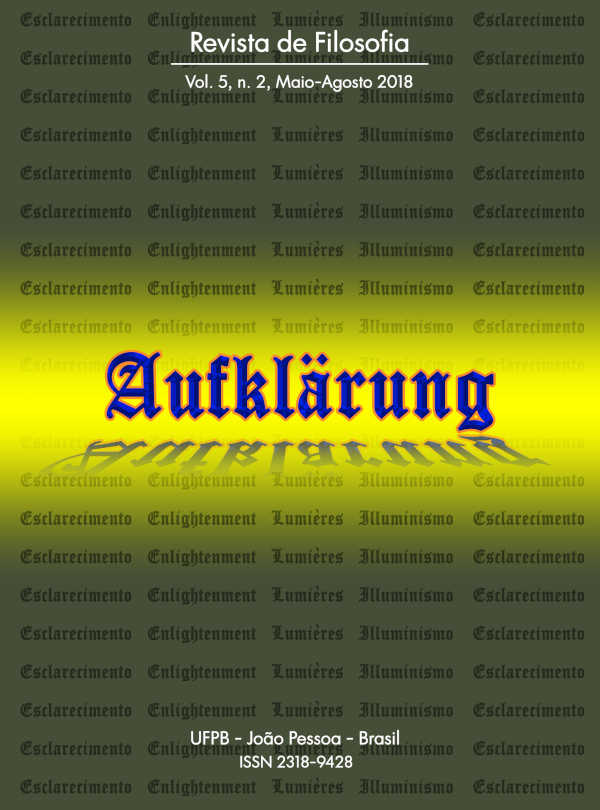Revisiting Hobbes: on freedom, political authority and civil disobedience
DOI:
https://doi.org/10.18012/arf.2016.39473Keywords:
dominion, freedom, Hobbes, political authority, subjection, submissionAbstract
This paper has two main sections. First, I argue that Hobbes was capable of providing a convincing model of political authority that strengthened the absolutist monarchy, due to two main factors: on the one hand, Hobbes’ conceptualization of freedom, which allowed him to offer a new light upon the relationship between obedience, obligation, freedom and servitude; on the other hand, Hobbes’ redefinition of sovereignty via the concept of representation. I show how Hobbes was aware of the intrinsic tension derived from the attempted convergence of these two distinct logics and I question the kinds of political rupture that are possible under Hobbes’ design, in such a way that would keep a democratic instinct and impulse in political life. After I revisit the relationship between freedom, power and civil disobedience, by looking at the relationship between the sovereign’s and the subjects’ capacity of judgment and by reflecting upon contemporary democratic challenges.
Downloads
References
BYRON M. (2015). Submission and Subjection in Leviathan: Good Subjects in the Hobbesian Commonwealth, London/NY: Palgrave Macmillian.
FLIKSCHUH K. (2012). Elusive Unity: The General Will in Hobbes and Kant. Hobbes Studies 25: 21-42
GUYER P. (2012). Hobbes is of the Opposite Opinion. Kant and Hobbes on the Three Authorities in the State. Hobbes Studies 25:91-119.
HOBBES T. (1984). De Cive. New York: Oxford University Press.
HOBBES T. (1998). Leviathan. Oxford: Oxford World’s Classics.
HAMILTON L. (2014). Freedom is Power – Liberty through political participation. Cambridge: Cambridge University Press.
JAKONEN M. (2016). Needed but unwanted. Thomas Hobbes’s Warnings on the Dangers on the Dangers of Multitude, Populism and Democracy. Las Torres de Lucca 9:.89-118.
SALZBORN S. (2015). No sovereignty without freedom: Machiavelli, Hobbes and the Global Order on the Twenty-first century. Theoria, 144, vol.62 (3): 19-39.
SKINNER Q. (2008). Hobbes and Republican Liberty. Cambridge: Cambridge University Press.
SREEDHAR S. (2010). Hobbes on Resistance – Defying the Leviathan. Cambridge: Cambridge University Press.
VENEZIA L. (2015). Hobbes on Legal Authority and Political Obligation, London/New York: Palgrave Macmillan.
Additional Files
Published
How to Cite
Issue
Section
License
Journal general policy
1.This journal works under a Creative Commons License aplied to online journals. That icence can be read in the following link: Creative Commons Attribution 4.0 International (CC BY 4.0).
2.Accordingly to this License, a)the journal declares that authors hold the copyright of their articles without restrictions, and they can archieve them as post-print elsewhere. b)the journal allow the author(s) to retain publishing rights without restrictions.
Metadata Policy for information describing items in the repository
1. Anyone may access the metadata free of charge at anytime.
2.The metadata may be re-used in any medium without prior permission, even commercial purposes provided the OAI Identifier or a link to the original metadata record are given, under the terms of a CC BY license refered for the Journal.







































